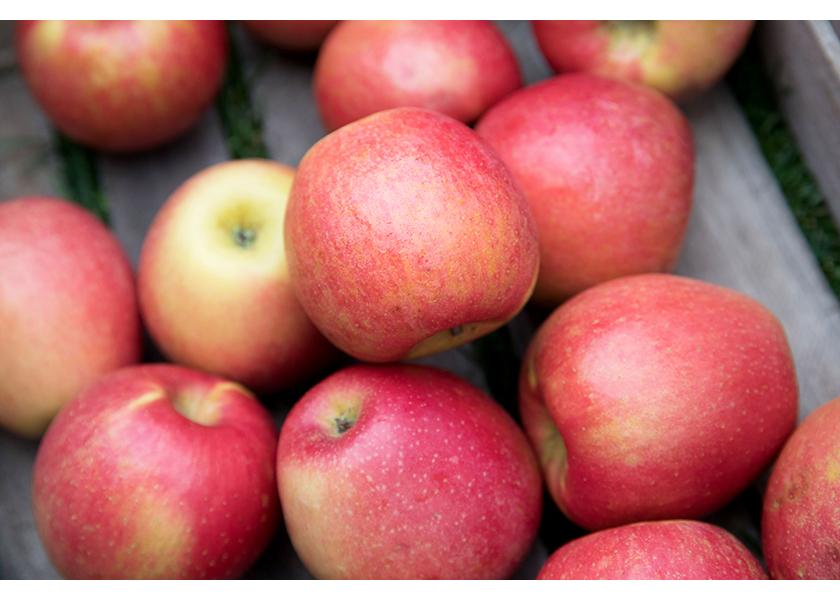Midwest Apple Improvement Association offers varietal options for small growers

The Oberlin, Ohio-based Midwest Apple Improvement Association has come up with a half-dozen varieties that enable small growers to offer great-tasting apples without the expense of the pricey managed varieties marketed by larger growing operations, said president Bill Dodd.
The MAIA varieties typically debut in farmers market settings or pick-your-own operations before turning up on supermarket shelves.
The breeding program is open to any member of the association, and any grower can join for a minimal fee, Dodd said. “We’ve become the only game in town for new varieties for small growers,” he said. All the varieties are patented and have a trademarked name. EverCrisp apples, many of which are grown in Michigan, are undoubtedly the most widely recognized MAIA offering. About 3 million EverCrisp trees have been planted in a number of states in the Midwest and Northeast.
Also known as MAIA1, EverCrisp, a cross between the Honeycrisp and fuji varieties, was touted by the Lansing-based Michigan Apple Committee as a crisp, rosy-colored apple that “shares the sweet and crisp qualities of its parent varieties and can last for weeks without refrigeration.”
Any members can plant the variety, Dodd said, as long as they meet the association’s packing and quality standards.
Others varieties developed by MAIA are:
-
MAIA-SM, or Sweet Maia — the most recent release, patented within the past two months. Sweet Maia is an early season, sweet, crisp variety that is ready ahead of gala, with very good red color, Dodd said. It stores well and offers a good eating experience.
- MAIA12, Summerset — harvests around the same time as Honeycrisp, in mid- to late September, and has a similar texture to Honeycrisp but a more complex flavor. It does not have the growing problems that Honeycrisp can have, Dodd said.
- MAIA11, or Rosalee — probably offers one of the best eating experiences of the MAIA varieties, Dodd said. “The skin seems to melt in your mouth.” It’s a mid-season variety that has good flavor and texture. It’s sweet but it can bruise easily.
- MAIA-L, or Ludacrisp — comes on a little bit later in the season, a week or so ahead of fuji, and is bicolor, very juicy with complex flavors and “a nice sweet-tart balance,” Dodd said. It’s gaining a following in the farmers market world but has not yet been widely planted commercially.
- MAIA-Z, Sweet Zinger — is a later-season bicolor variety with “a very complex flavor.” It is hard, crisp, and “not the prettiest apple.” he said. “Horticulturally, the tree is a weak grower.”
The MAIA breeding program currently has about 12 selections in the second-generation evaluation stage, Dodd said. That means buds have been grafted onto commercial root stocks. “We’re evaluating them to see if they’re suitable to be patented, trademarked and released,” he said. Dodd estimated that the association is probably a couple of years away from its next release.
When it comes time to evaluate the flavor and eating characteristics of the new varieties, MAIA usually solicits the help of consumers, who compare them to existing varieties, like gala, fuji or Honeycrisp.
“If it’s not a better eating experience than one of those staple items, there’s not much sense in moving forward with it,” he said. “It really has to be a winner,” Dodd said. “There are so many new varieties that it really has to be exceptional for us to move forward with it.” Dodd is among those who believe that there may be an overabundance of choices in the apple section.
“There are too many apple varieties,” he said. “We are confusing our consumers and competing with ourselves.” Some of those varieties are destined to fail, he said. At the same time, the industry has an obligation to “put the most flavorful, most awesome eating experience out on the shelf that it can,” he said. “What’s going to drive apple consumption is to put apples that are just so good out there that people want to eat them all the time.”







